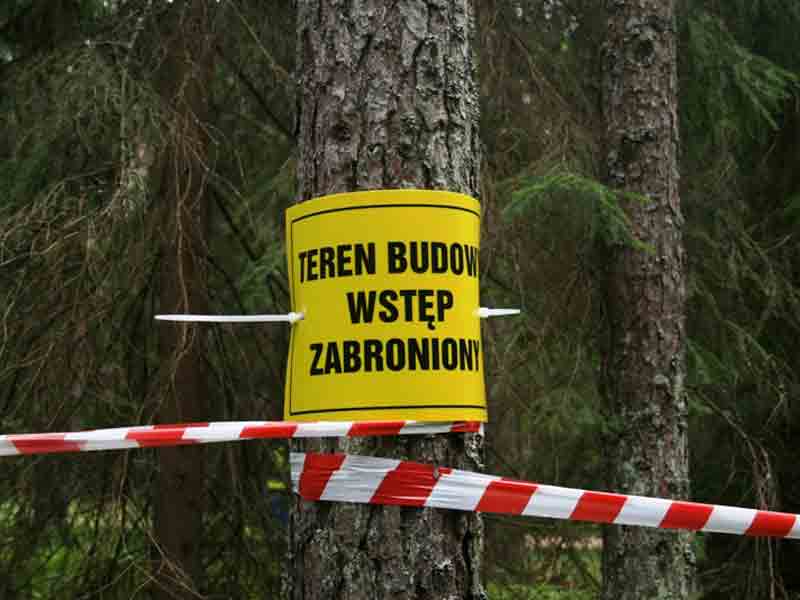Combe Haven Valley has been described as one of the finest undeveloped river valleys in the South-East. 'It experiences almost no traffic, [and] it is an exceptionally tranquil oasis in one of England's busiest regions,' according to one environmentalist. This is the type of outstanding landscape in the firing line thanks to the Coalition Government’s current road building policy, despite the hiatus which followed the nineties boom.
In this particular case, as Dominic Franklin, a veteran of the 90s' road protests says; the proposed Bexhill Bypass, 'would have a major impact on two sites of special scientific interest [Combe Haven and Marline Valley], in terms of habitat severance, disruption of hydrology, loss of ancient woodland, and disturbance to wetland bird populations [including lapwings and redshanks] and protected species like dormice.'
But before we look at national policy, it’s worth considering the arguments for and against this £95 million scheme as it does exemplify the issue and illustrate what's at stake. Tory MP for Hastings & Rye, Amber Rudd, and East Sussex County Council [ESCC] leader, Peter Jones, both claim the road is an essential part of regeneration strategy with an estimated 2,000 jobs allied to it. Cllr Jones has said: 'This is not just a road. This is about prosperity. More than £300 million of investment has already gone into the area and the link road is absolutely central to its future economic development. It will bring real benefits to residents and businesses, providing access to new business space, creating jobs and helping companies thrive. It will also give developers access to much-needed housing development that will help the two towns grow as communities.'
Car dependency
The Hastings Alliance [HA] which is formed of local wildlife and amenity groups in nearby communities, sees it differently. 'The link road would lock us into an unsustainable, car-dependent future and outmoded models of development that belong to the 1960s,' HA chairperson, Nick Bingham, told The Ecologist. 'We can and must do better than that, and upgrade and increase our investment in sustainable transport accessible to all sections of society. It’s precisely because of the existing and potential public transport connections that Saga has chosen to bring 800 plus jobs into the town.'
Derrick Coffee, also of HA, adds: 'There is a strong possibility that some of the out of town jobs generated by this road will simply replace "in-town" jobs which would mean those who currently walk to work would have to get a car. This is not an option for an area where only 39 per cent of households have one. Small businesses are a positive feature of both Bexhill and Hastings; with the link road they could disappear.'
But what of the current congestion in and around Bexhill? According to the HA the benefits of the road and the estimated reduction to journey times (on average under five minutes) are negligible, especially when you take into account that the success of the town's manufacturing and retail sectors during the recession. Bingham and Coffee point to alternatives such as Workplace Travel Plans, with the county council putting in place strategies to help local businesses; a new £5 million railway station at Glyne Gap with its metro style service between Bexhill and Hastings, integrating with improved bus services; and, finally, the planned Bexhill to Hastings Cycleway due to be built in July 2011.
Relocations
But it appears such alternatives are consistently overlooked in general as well as specifically in this case, where according to the South East Forum for Sustainability, the 2,000 jobs to which Amber Rudd refers are largely existing jobs relocating out of town (80 per cent), while the economic benefits of the road are almost wholly (70 per cent) made up of short time savings of around five minutes. And it seems the Department for Transport (DfT) still works from the self same NATA (new approach to appraisal) evaluation which assesses roads’ economic value in relation to average journey times saved, despite reservations held by ministers, Theresa Villiers and Norman Baker.
Mr Baker, MP for Lewes, is in charge of local transport and told The Ecologist: 'We have been clear that our priority is to reduce the deficit, while building a transport system that supports sustainable economic growth and reduces carbon. To ensure we get maximum value for money for every pound we spend we’ve challenged scheme promoters to consider the scope and cost of proposed schemes, options for lower cost alternatives and their ability to contribute more locally. In the case of the Bexhill to Hastings link road, it is for East Sussex County Council to decide whether after doing this work the scheme remains a priority and submit a best and final funding bid to me for consideration.'
Roads competing for cash
Baker refers to new sources of funding (as yet no developer contributions have been secured) as well as alternatives to the scheme that ESCC will have to come up with by autumn 2011. The road is now in a 'development pool' of 22 similar schemes - roads, which didn’t get the green light following October’s spending review, now competing for a pot of £600 million. And this is one of the key planks of government policy for devolving power to the regions and promoting local authority enterprise.
The Campaign for Better Transport (CBT) is particularly scathing in their assessment of this approach with their roads spokesman Richard George telling The Ecologist: 'In practice this means tin-pot councillors being given free rein to develop completely unaffordable road schemes which do nothing for local traffic and make it harder to cut CO2 and avoid climate change. It’s unlikely that the Bexhill-Hastings Link Road will be built, as there isn’t enough money to build all the schemes in the development group, and it has the worst benefit-cost ratio.
'And that’s why it’s all the more important for the government to tell East Sussex that [they] will keep plugging away at the link road instead of looking for cheaper options. They’ve already spent £15 million. The main thing that's keeping road building at bay for the moment is a severe lack of funding, and a few people, including Norman Baker, who understand that we cannot build our way out of congestion.'
Devolved campaigning
What do other interested parties have to say? Ironically, the Woodland Trust has adopted a similar strategy to the government by calling for devolved action with local communities encouraged to campaign in cases where ancient woods come under threat by roads.
Nikki Williams, head of Woodland Trust campaigns, explained: 'The Trust isn’t against roads per se but when a specific road development threatens unique, irreplaceable and dwindling habitat, then we will oppose it. With 450 known live cases of ancient woods under threat we have prioritise so depending on the size and/or complexity of the case. We either advise our WoodWatch volunteers on how to protest locally, or we get involved directly ourselves.'
The A470 Snowdonia road improvement scheme is a case in point. Although the majority of the proposed Cross Foxes to Maes yr Helmau route poses no problems, 20 per cent of the route cuts through the Meirionnydd Oakwoods; an irreplaceable ancient woodland which has added merit of European protected status.
Rory Francis of Coed Cadw (the Woodland Trust in Wales) said: 'Ancient woods are our richest and most important sites for a vast range of insects, birds, animals, flowers and trees and are home to more threatened species than any other UK habitat. We simply cannot afford to lose them, and planting small areas of new woodland can never compensate for their loss.'
A national roadbuilding programme?
Other high profile and equally controversial schemes include the £130 million Kingskerswell Bypass in south Devon which would run through the historic part of Kingskerswell village and through the garden of a listed house. The Norwich Northern Distributor Road is another. Skirting the north-eastern suburbs of Norwich, the CBT's Richard George says it is likely to have a severe impact on barn owls (a protected species), generate more traffic and open the greenbelt up to development.
What all the opponents of these roads are up against, is the policy outlined by Secretary of State for Transport, Philip Hammond in October, following the comprehensive spending review: 'This government sees transport as a key driver of growth nationally and in the regions. Taken together, this investment will not only bring benefits in terms of reduced congestion, shorter journey times and more efficient public transport, but also provide a vital economic boost.
'For every pound we spend on Highways Agency schemes, on average we will get back £6 of benefits and in many cases there are even higher returns for local authority schemes. Transport is vital to securing the UK’s long term prosperity. That is why these schemes are so important and why I will continue to argue for investment which delivers long term benefits for both the travelling public and the economy as a whole.'
In a recent meeting organised by The Campaign for Better Transport with the Chair of the Transport Select Committee, Louise Ellman MP, Derrick Coffee of the Hastings Alliance managed to turn the tables on Hammond and air some reservations.
'I asked why are big transport projects with low benefit/cost ratios are favoured over small schemes. The implications of climate change are still not informing decisions around transport. Why are supermarkets allowed to get away with large allocations of land for free parking? A charge would produce useful funds for alternative transport and encourage less wasteful uses of land. Funding for cycling training over the UK has been invaluable but is now being threatened – why?'
A decision on the Bexhill bypass and the 21 other schemes in the development pool is expected by the end of December 2011.
Jan Goodey is a freelance journalist
| READ MORE... | |
 |
INVESTIGATION What will the coalition Government do about planning law? Planning - a dull subject that has a direct impact on some of the most important areas of our lives. One proposal to speed up planning has just been scrapped by the new Government. What will replace it, asks Bibi Van Der Zee |
 |
NEWS Policy rethink required to avoid worsening congestion Building more roads is not the answer to worsening motorway congestion, according to new research from the Campaign for Better Transport, which advocates more low-impact solutions |
 |
INVESTIGATION Road rage Unnoticed by most of the media, New Labour has embarked on a roadbuilding scheme just as large as the one the Tories bragged was ‘the biggest since the Romans’. All over the UK, however, ordinary people have noticed, and everyone – from doctors and teachers, to old-style road protestors – are once again saying: enough is enough. Paul Kingsnorth reports |
 |
HOW TO MAKE A DIFFERENCE Saving a pristine wilderness from an international motorway How activist Malgorzata Górska helped protect a Polish forest valley, and changed her government's attitude to conservation in the process |
 |
COMMENT COALITION GREEN WATCH: Will the Tory Lib-Dem government deliver on its environmental promises? In the first of an exclusive new series Bibi van der Zee sets out how we'll put to the test David Cameron's pledge to head the 'greenest government in history' - and why we need YOUR help |








